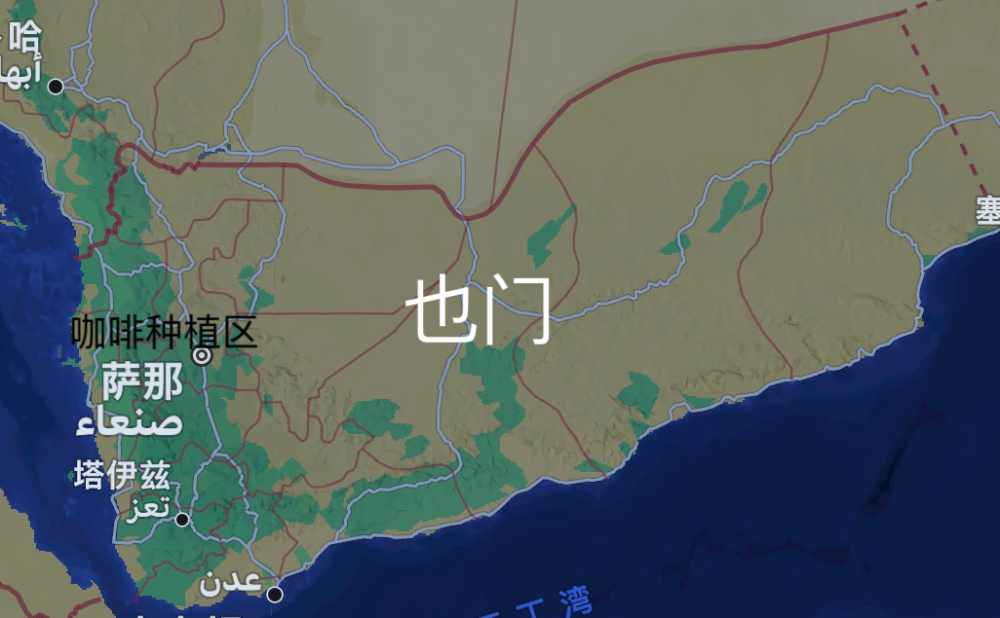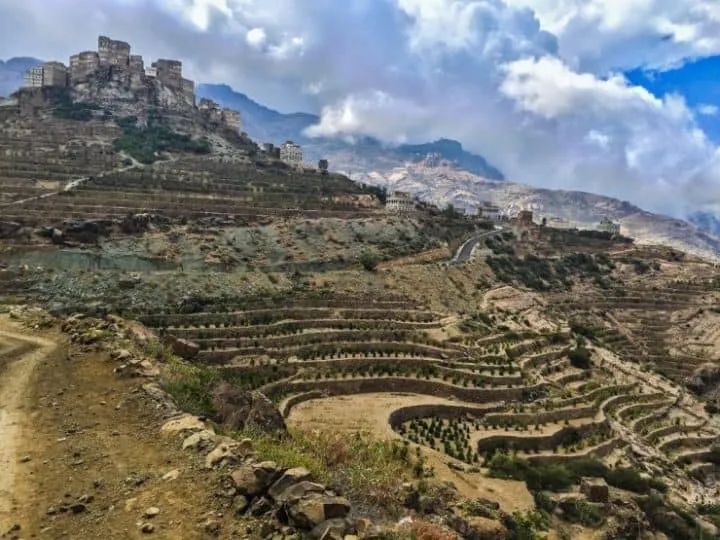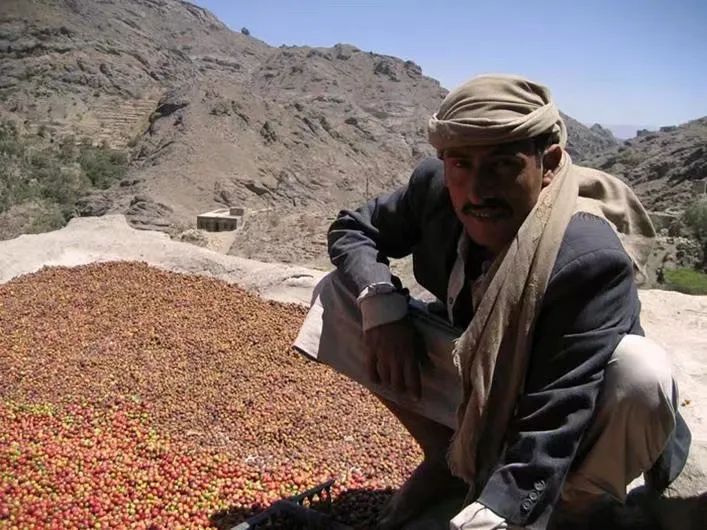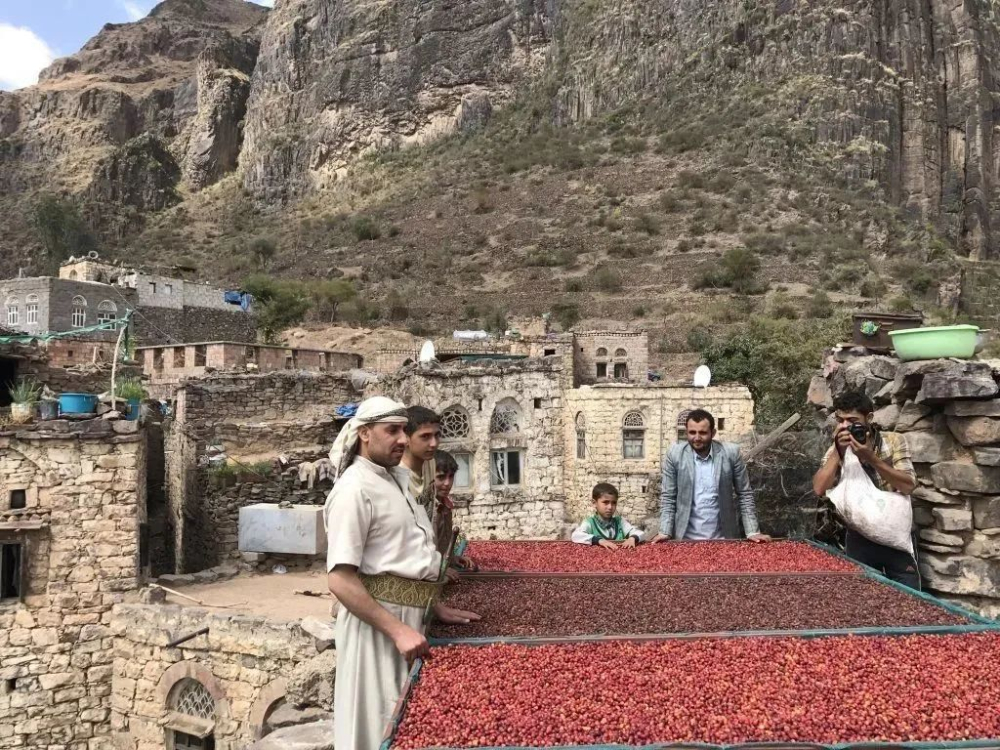Why are Yemeni coffee beans so rare now?
People have heard a lot about Ethiopian coffee. Although Ethiopia was the first country in the world to discover coffee, in the 17th century, the first Yemeni coffee was exported to Europe through the ancient port of Mocha. Ethiopia, which is across the sea from Yemen, also sells coffee through the port of Mocha. Yemeni mocha is the originator of the World Coffee Trade, which is the origin of the name Mocha Coffee. Historically, the word mocha has been used as a nickname for coffee, such as mocha coffee and mocha pot to pay homage to Yemen.

However, Yemen is the first country in the world to produce coffee on a large scale as a crop. Coffee is grown at an average altitude of more than 2300 meters, and high-quality Yemeni coffee has a unique flavor: complex Middle Eastern spices, ripe fruit, wine, cocoa, mellow taste and sweet taste.

Yemeni Coffee also had its glory days, and its decline continues to this day due to a variety of factors:
1. There are not many suitable places to grow coffee in Yemen, and wars began in 2015.
Yemeni coffee-growing areas are almost entirely concentrated in the western mountainous areas, relying on sunshine, Rain Water and unique soil.
War began in 2015, and transport infrastructure on transport routes, including fuel and food, was severely damaged, making it difficult for local people to travel, making it difficult for goods to get in and out, and Yemen faced severe inflation; countless families lost their sources of income; the public sector of the Government was unable to pay wages; and countless people were displaced and had no time to pay attention to the development of their coffee industry.

two。 Including competition from local growers of the drug Qat.
Because of the instability of the world coffee market, coffee prices are often low, and Yemeni coffee farmers find that they can benefit more from the cultivation of cat grass, most of them turning to the cultivation of cat grass. According to 2012 data, the production of coffee in Yemen is only 198 tons, while that of Cajun grass is 190800 tons. By 2016, Yemen's coffee production accounted for only 0.1% of the world's total, which is still commercial beans, and the boutique coffee beans are even more rare to 0.0001%.

3. There is no good way to handle coffee and rarely reaches the level of fine coffee.
Yemen is the only producer of full-time coffee in the world. Yemen has an extremely dry climate. Coffee is mainly grown in the western highlands, with an average annual rainfall of only 400 meters and 750 millimeters, far less than the best rainfall of 1500 million meters in Arabica. Due to the lack of water environment, farmers are still unable to introduce more advanced washing methods.
Farmers dry the harvested fruit on the roof of a stone house built by the mountain. during the sun and drying rice, they usually turn with a wooden rake to keep each bean evenly dried. After about 20 days of coffee drying, the outer pulp and peel are removed to remove coffee beans, and the process of peeling and shelling all depends on crude stone grinding equipment. Yemeni coffee is rich in flavor, complex, wild, mellow, strong fermentation taste and low acidity, coupled with the fact that Yemeni coffee often contains an uncertain factor (the timing of rain in the season).

At present, only a few coffee shops in China have the opportunity to taste Yemeni coffee. In recent years, Yemeni coffee cultivation has been continuously developed and optimized, more and more on the stage of boutique coffee, and a new type of special treatment has emerged. it has a powerful and mysterious name-alchemy: this treatment requires whole fruit or peeled flesh to be canned. Add different pairs of inert gases (carbon dioxide, nitrogen, etc.) into the tank, combined with 10bar (pressure) / 145psi (pressure), combined with temperature control, gas regulation, management and drying technology to process raw beans.

Yemeni coffee is currently a relatively rare and niche coffee on the market, and then people will have more access to Yemeni coffee.
-END-
Front Street Cafe
No. 10 Baoqian street, Yandun road, Dongshankou, Yuexiu district, Guangzhou, Guangdong province

Important Notice :
前街咖啡 FrontStreet Coffee has moved to new addredd:
FrontStreet Coffee Address: 315,Donghua East Road,GuangZhou
Tel:020 38364473
- Prev

Ethiopian Sidamo all Red Fruit Sun Sun Santa Vini Coffee beans
Front Street Coffee: Sidamo Santavini 74158 Coffee country: Ethiopia Grade: G1 production area: Sidamo treatment Station: DWD Santa Veni treatment Station altitude: 2050 m treatment method: all red fruit sun varieties: 74158 flavor: pineapple, mango, blueberry, sweet orange DW
- Next

How to store the coffee beans bought home?
Do you usually have the impulse to buy coffee beans after drinking coffee outside? I bought a lot of utensils at home and thought I could cook them myself at home, but how to store the coffee beans when I got home? How long will the beans last? How long is the shelf life? In today's article, Qianjie will teach you how to store coffee beans.
Related
- Guji coffee producing area of Guji, Ethiopia: Humbela, Shakiso, Wulaga
- What is the most expensive variety of Qiloso in BOP multi-variety group?
- How to store the coffee beans bought home?
- Why are Yemeni coffee beans so rare now?
- Ethiopian Sidamo all Red Fruit Sun Sun Santa Vini Coffee beans
- SOE is mostly sour? What does it mean? Is it a single bean? what's the difference between it and Italian blending?
- Is Italian coffee beans suitable for making hand-brewed coffee?
- How to choose coffee beans when making cold coffee? What kind of coffee beans are suitable for making cold coffee?
- Just entered the pit to make coffee, what kind of coffee beans should be chosen?
- Can only Japan buy real Blue Mountain Coffee? What are authentic Jamaican Blue Mountain coffee beans?

